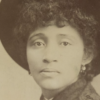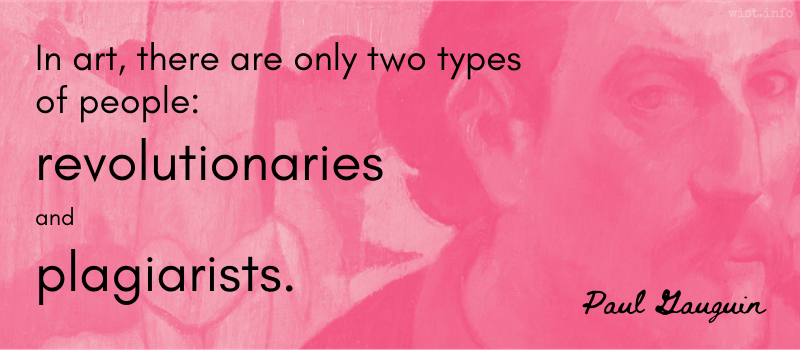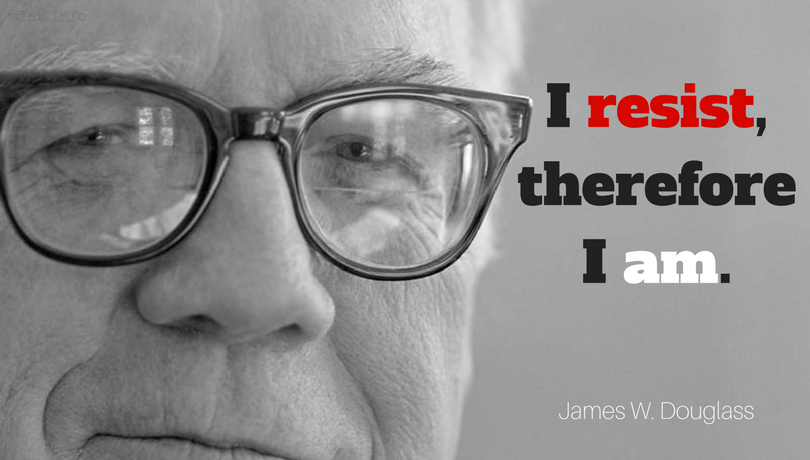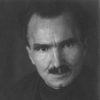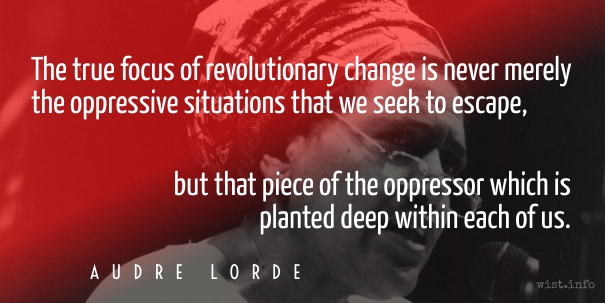But in the days that are now passing over us, even fools are arrested to ask the meaning of them; few of the generations of men have seen more impressive days. Days of endless calamity, disruption, dislocation, confusion worse confounded: if they are not days of endless hope too, then they are days of utter despair. For it is not a small hope that will suffice, the ruin being clearly, either in action or in prospect, universal. There must be a new world, if there is to be any world at all!
Thomas Carlyle (1795-1881) Scottish essayist and historian
Latter-Day Pamphlets, # 1 “The Present Time” (1850-02-01)
(Source)
Quotations about:
revolution
Note not all quotations have been tagged, so Search may find additional quotes on this topic.
This is that same Foulon named âme damnée du Parlement; a man grown gray in treachery, in griping, projecting, intriguing and iniquity: who once when it was objected, to some finance-scheme of his, “What will the people do?” — made answer, in the fire of discussion, “The people may eat grass”: hasty words, which fly abroad irrevocable, — and will send back tidings!
Thomas Carlyle (1795-1881) Scottish essayist and historian
The French Revolution: A History, Part 1, Book 3, ch. 9 (1.3.9) (1837)
(Source)
Writing of Joseph-François Foullon de Doué (1715-1789), French politician, the "damned soul of the Parliament," and a Controller-General of Finances under Louis XVI. Widely hated by "the people" for such statements and actions, he was one of the early targets of the French Revolution, as told in Dickens, A Tale of Two Cities. He was marched from his country hiding place back to Paris, with the mob shoving grass and hay into his face and mouth. He became the first recorded person to have been lynched from a lamp post. (The rope broke three times, so he was instead beheaded and his grass-stuffed head marched about on a pike.)
Among the lessons taught by the French Revolution, there is none sadder or more striking than this — that you may make everything else out of the passions of men except a political system that will work, and that there is nothing so pitilessly and unconsciously cruel as sincerity formulated into dogma.
James Russell Lowell (1819-1891) American diplomat, essayist, poet
“Abraham Lincoln” (1864), My Study Windows (1871)
(Source)
To do good to mankind is the chivalrous plan,
And is always as nobly requited;
Then battle for freedom wherever you can.
And, if not shot or hang’d, you’ll get knighted.
We used to think that revolution is the cause of change. Actually, it is the other way around: revolution is a by-product of change. Change comes first, and it is the difficulties and irritations inherent in change that set the stage for revolution. To say that revolution is the cause of change is like saying juvenile delinquency is the cause of the change from boyhood to manhood.
What is at issue here is relative poverty, not absolute poverty. Inferiority is a relative concept. When everyone is poor together, there is no shame in being poor. As Marx said, it is not living in a hovel that causes people to feel ashamed, it is living in a hovel next to a palace. And as he also said, shame is the emotion of revolution, i.e. of violence. But one does not have to be a Marxist, or subscribe to everything he said (and I do not), in order to see how correct his insight was.
James Gilligan (b. c. 1936) American psychiatrist and author
Preventing Violence, ch. 5 (2001)
(Source)
Most anarchists believe the coming change can only come through a revolution, because the possessing class will not allow a peaceful change to take place; still we are willing to work for peace at any price, except at the price of liberty.
Lucy Parsons (1851-1942) American labor organizer, anarchist, orator [a.k.a. Lucy Gonzalez]
“The Principles of Anarchism,” lecture (1905)
(Source)
Liberty, after she has been chained up awhile, is always more fierce, and sets her teeth in deeper, than she would otherwise have done if she had never been restrained.
[Acriores autem morsus sunt intermissae libertatis quam retentae.]
Marcus Tullius Cicero (106-43 BC) Roman orator, statesman, philosopher
De Officiis [On Duties; On Moral Duty; The Offices], Book 2, ch. 7 (2.7) / sec. 14 (44 BC) [tr. Cockman (1699)]
(Source)
(Source (Latin)). Alternate translations:
And the inflictions of freedom interrupted, are more rigorous than if it had been retained.
[tr. McCartney (1798)]
For the inflictions of liberty, when it has been suspended, are more severe than if it had been retained.
[tr. Edmonds (1865)]
Men indeed feel more keenly the suppression of liberty than any evils incident to its preservation.
[tr. Peabody (1883)]
Freedom, if suppressed, only bites with keener fang.
[tr. Gardiner (1899)]
Freedom suppressed and again regained bites with keener fangs than freedom never endangered.
[tr. Miller (1913)]
But the wounds caused by the suspension of freedom hurt worse than those caused by maintaining it.
[tr. Edinger (1974)]
Awful as silence. Hark! the rushing snow!
The sun-awakened avalanche! whose mass,
Thrice sifted by the storm, had gathered there
Flake after flake, in heaven-defying minds
As thought by thought is piled, till some great truth
Is loosened, and the nations echo round,
Shaken to their roots, as do the mountains now.
Remind them that the sword still hangs upon the wall and the heart still beats within the man, and that that sword will be unsheathed again, if necessary, in defense of your rights. Given them to understand that you will not stand patiently by and see your hard earnings squandered by a luxuriating class of idlers. If the American manhood will arouse itself and speak to those fellows in plain language, not to be misunderstood, they can save themselves, their country and their children, from the fate of poverty which awaits them. Will you do it?
Lucy Parsons (1851-1942) American labor organizer, anarchist, orator [a.k.a. Lucy Gonzalez]
“Wage Slaves vs. Corporations,” The Liberator (24 Sep 1905)
(Source)
What has ever been granted to the countless millions of workers of Earth without a fight? Czar Nicholas has discovered that he is not all Russia. Will he “let the voice of the people be heard”? Was it argument or force that changed Czar Nicholas’s mind? Well , the Russian people have gotten the thin edge of the wedge in; let them keep striking hard, they will split the throne after a while.
Lucy Parsons (1851-1942) American labor organizer, anarchist, orator [a.k.a. Lucy Gonzalez]
“On Revolution in Russia and Chinese Use of the Boycott,” The Liberator (3 Sep 1905)
(Source)
Independence was an act of revolution; republicanism was something new under the sun; the federal system was a vast experimental laboratory. Physically Americans were pioneers; in the realm of social and economic institutions, too, their tradition has been one of pioneering. From the beginning, intellectual and spiritual diversity have been as characteristic of America as racial and linguistic. The most distinctively American philosophies have been transcendentalism — which is the philosophy of the Higher Law — and pragmatism — which is the philosophy of experimentation and pluralism. These two principles are the very core of Americanism: the principle of the Higher Law, or of obedience to the dictates of conscience rather than of statutes, and the principle of pragmatism, or the rejection of a single good and of the notion of a finished universe. From the beginning Americans have known that there were new worlds to conquer, new truths to be discovered. Every effort to confine Americanism to a single pattern, to constrain it to a single formula, is disloyalty to everything that is valid in Americanism.
Everyone loves the Revolution. We only disagree on whether it has occurred.
James Richardson (b. 1950) American poet
“Vectors: 56 Aphorisms and Ten-second Essays,” Michigan Quarterly Review, # 8 (Spring 1999)
(Source)
Contumely always falls upon those who break through some custom or convention. Such men, in fact, are called criminals. Everyone who overthrows an existing law is, at the start, regarded as a wicket man. Long afterward, when it is found that this law was bad and so cannot be re-established, the epithet is changed. All history treats almost exclusively of wicked men who, in the course of time, have come to be looked upon as good men. All progress is the result of successful crimes.
Friedrich Nietzsche (1844-1900) German philosopher and poet
The Dawn [Morgenröte], sec. 20 (1881) [Mencken (1907)]
(Source)
Alternate translations:
We have to make good a great deal of the contumely which has fallen on all those who, by their actions, have broken through the conventionality of some custom -- such people generally have been called criminals. Everybody who overthrew the existing moral law has hitherto, at least in the beginning, been considered a wicked man; but when afterwards, as sometimes happened, the old law could not be re-established and had to be abandoned, the epithet was gradually changed. History almost exclusively treats of such wicked men who, in the course of time, have been declared good men.
[tr. Volz (1903)]
One has to take back much of the defamation which people have cast upon all those who broke through the spell of a custom by means of a deed -- in general, they are called criminals. Whoever has overthrown an existing law of custom has hitherto always first been accounted a bad man: but when, as did happen the laws could not afterwards be reinstated and this fact was accepted, the predicate gradually changed -- history treats almost exclusively of these bad men who subsequently became good men!
[tr. Hollingdale (1997)]
The parliamentary battle of the NSDAP [Nazi Party] had the single purpose of destroying the parliamentary system from within through its own methods. It was necessary above all to make formal use of the possibilities of the party-state system but to refuse real cooperation and thereby to render the parliamentary system, which is by nature dependent upon the responsible cooperation of the opposition, incapable of action.
Ernst Rudolf Huber (1903-1990), German jurist and constitutional historian
Constitutional Law of the Greater German Reich [Verfassungsrecht des Grossdeutschen Reiches] (1939)
(Source)
Reprinted in National Socialism, US State Department (1943).
A person, an individual being, has a thousand ways of conveying his feelings and thoughts. He is riches without end, he is a world in which we can always discover something new. A crowd, on the other hand, reduces the individuality of the person; a man in a crowd limits himself to a few forms of elementary behavior. The forms through which a crowd can express its yearnings are extraordinarily meager and continually repeat themselves: the demonstration, the strike, the rally, the barricades. That is why you can write a novel about a man, but about a crowd — never.
Ryszard Kapuściński (1932-2007) Polish journalist, photographer, poet, author
Shah of Shahs, Part 3 “The Dead Flame” (1982)
(Source)
Except for the field organizers of strikes, who were pretty tough monkeys and devoted, most of the so-called Communists I met were middle-class, middle-aged people playing a game of dreams. I remember a woman in easy circumstances saying to another even more affluent: “After the revolution even we will have more, won’t we, dear?” Then there was another lover of proletarians who used to raise hell with Sunday picnickers on her property.
I guess the trouble was that we didn’t have any self-admitted proletarians. Everyone was a temporarily embarrassed capitalist. Maybe the Communists so closely questioned by the investigation committees were a danger to America, but the ones I knew — at least they claimed to be Communists — couldn’t have disrupted a Sunday-school picnic. Besides they were too busy fighting among themselves.
John Steinbeck (1902-1968) American writer
“A Primer on the ’30s,” Esquire (1 Jun 1960)
(Source)
Collected in American and Americans (1966).
A portion of this was paraphrased in Ronald Wright, A Short History of Progress (2004): "John Steinbeck once said that socialism never took root in America because the poor see themselves not as an exploited proletariat but as temporarily embarrassed millionaires." That paraphrase has, in turn, been frequently cited as a direct quotation of Steinbeck.
After any disturbance (such as two world wars coinciding with a period of growing economic and monetary incomprehensibility) we find our old concepts inadequate and look for new ones. But it unfortunately happens that the troubled times which produce an appetite for new ideas are the least propitious for clear thinking.
Rebecca West (1892-1983) British author, journalist, literary critic, travel writer [pseud. for Cicily Isabel Fairfield]
In The Sunday Telegraph, London (1981)
(Source)
Inferiors revolt in order that they may be equal, and equals that they may be superior.
Aristotle (384-322 BC) Greek philosopher
Politics [Πολιτικά], Book 5, ch. 2 / 1302a.29 [tr. Jowett (1885)]
(Source)
Alternate translations:
- "Now, what they aim at may be either just or unjust; just, when those who are inferior are seditious, that they may be equal; unjust, when those who are equal are so, that they may be superior." [tr. Ellis (1912)]
- "When inferior, people enter on strife in order that they may be equal, and when equal, in order that they may be greater." [tr. Rackham (1932)]
- "The lesser engage in factional conflict in order to be equal; those who are equal, in order to be greater." [tr. Lord (1984)]
Totalitarianism begins in contempt for what you have. The second step is the notion: “Things must change — no matter how, Anything is better than what we have.” Totalitarian rulers organize this kind of mass sentiment, and by organizing it articulate it, and by articulating it make the people somehow love it.
Hannah Arendt (1906-1975) German-American philosopher, political theorist
Interview with Roger Errera (Oct 1973), The New York Review of Books (26 Oct 1978)
(Source)
When smashing monuments, save the pedestals — they always come in handy.
[Burząc pomniki, oszczędzajcie cokoły. Zawsze mogą się przydać.]
Stanislaw Lec (1909-1966) Polish aphorist, poet, satirist
Unkempt Thoughts [Myśli nieuczesane] (1957) [tr. Gałązka (1962)]
(Source)
The art of leadership is a serious matter. One must not lag behind a movement, because to do so is to become isolated from the masses. But one must not rush ahead, for to rush ahead is to lose contact with the masses. He who wishes to lead a movement and at the same time keep touch with the vast masses, must conduct a fight on two fronts, against those who lag behind and against those who rush ahead.
Josef Stalin (1879-1953) Georgian revolutionary and Soviet dictator
Leninism, Vol. 2 (1926) [tr. Paul (1933)]
(Source)
Often elided, "He who wishes to lead a movement must conduct a fight on two fronts, against those who lag behind and against those who rush ahead."
A revolution requires of its leaders a record of unbroken infallibility; if they do not possess it, they are expected to invent it.
Murray Kempton (1917-1997) American journalist.
Part of Our Time: Some Ruins & Monuments of the Thirties, ch. 3 (1955)
(Source)
The art of holding onto power is the American system’s special grace. The trick is to make reform seem so tantalizingly close as to dull the edge of militancy and force the purest revolutionaries into the peripheries of political action.
Andrew Kopkind (1935-1994) American journalist
“Are We in the Middle of a Revolution?” New York Times Magazine (10 Nov 1968)
(Source)
In art, there are only two types of people: revolutionaries and plagiarists. And in the end, doesn’t the revolutionary’s work become official, once the State takes it over?
Paul Gauguin (1848-1903) French painter [Eugène Henri Paul Gauguin]
Letter in Le Soir (25 Apr 1895)
Collected in Daniel Guérin, ed., The Writings of a Savage (1996) [tr. Levieux].
Often given as "Art is either plagiarism or revolution," or sometimes "Art is either a revolutionist or a plagiarist." This is often cited from James Huneker, The Pathos of Distance (1913), but there it is given as a paraphrase: "Paul Gauguin has said that in art one is either a plagiarist or a revolutionary."
(Huneker's book elsewhere contains the parallel paraphrase, "Paul Gauguin has said that all artists are either revolutionists or reactionists.")
But if physical death is the price that a man must pay to free his children and his white brethren from a permanent death of the spirit, then nothing could be more redemptive. This is the type of soul force that I am convinced will triumph over the physical force of the oppressor.
Martin Luther King, Jr. (1929-1968) American clergyman, civil rights leader, social activist, preacher
“The Rising Tide of Racial Consciousness,” Speech, National Urban League, New York (6 Sep 1960)
(Source)
Abuse is a proof that you are felt. If they praise you, you will work no revolution.
For the Bolsheviki the end to be achieved was the Communist State, or the so-called Dictatorship of the Proletariat. Everything which advanced that end was justifiable and revolutionary. The Lenins, Radeks, and Zorins were therefore quite consistent. Obsessed by the infallibility of their creed, giving of themselves to the fullest, they could be both heroic and despicable at the same time. They could work twenty hours a day, live on herring and tea, and order the slaughter of innocent men and women. Occasionally they sought to mask their killings by pretending a “misunderstanding,” for doesn’t the end justify all means? They could employ torture and deny the inquisition, they could lie and defame, and call themselves idealists. In short, they could make themselves and others believe that everything was legitimate and right from the revolutionary viewpoint; any other policy was weak, sentimental, or a betrayal of the Revolution.
Emma Goldman (1869-1940) Lithuanian-American anarchist, activist
My Disillusionment in Russia, ch. 12 (1920)
(Source)
I’d be the first to say that some historical victories have been won by violence; the U.S. Revolution is certainly one of the foremost. But the Negro revolution is seeking integration, not independence. Those fighting for independence have the purpose to drive out the oppressors. But here in America, we’ve got to live together. We’ve got to find a way to reconcile ourselves to living in community, one group with the other. The struggle of the Negro in America, to be successful, must be waged with resolute efforts, but efforts that are kept strictly within the framework of our democratic society. This means reaching, educating and moving large enough groups of people of both races to stir the conscience of the nation.
Martin Luther King, Jr. (1929-1968) American clergyman, civil rights leader, social activist, preacher
Playboy interview (Jan 1965)
(Source)
Violence as a way of achieving racial justice is both impractical and immoral. It is impractical because it is a descending spiral ending in destruction for all. The old law of an eye for an eye leaves everybody blind. It is immoral because it seeks to humiliate the opponent rather than win his understanding; it seeks to annihilate rather than to convert. Violence is immoral because it thrives on hatred rather than love. It destroys community and makes brotherhood impossible. It leaves society in monologue rather than dialogue. Violence ends by defeating itself. It creates bitterness in the survivors and brutality in the destroyers.
Martin Luther King, Jr. (1929-1968) American clergyman, civil rights leader, social activist, preacher
Stride Toward Freedom, ch. 11 “Where Do We Go from Here?” (1958)
(Source)
From the standpoint of a professional military man there is one good thing about revolutions: the opportunities for swift promotion are excellent . . . even if the pay is inclined to be irregular.
History unfortunately leaves some people oppressed and some people oppressors. And there are three ways that individuals who are oppressed can deal with their oppression. One of them is to rise up against their oppressors with physical violence and corroding hatred. But oh this isn’t the way. For the danger and the weakness of this method is its futility. Violence creates many more social problems than it solves. And I’ve said, in so many instances, that as the Negro, in particular, and colored peoples all over the world struggle for freedom, if they succumb to the temptation of using violence in their struggle, unborn generations will be the recipients of a long and desolate night of bitterness, and our chief legacy to the future will be an endless reign of meaningless chaos. Violence isn’t the way.
Martin Luther King, Jr. (1929-1968) American clergyman, civil rights leader, social activist, preacher
“Loving Your Enemies,” Sermon, Dexter Avenue Baptist Church, Montgomery (17 Nov 1957)
(Source)
I resist, therefore I am.
James W. "Jim" Douglass (b. 1937) American author, activist, Christian theologian
“Revolution through Solitude,” Resistance and Contemplation (1972)
(Source)
War is a simple matter compared with revolution. War is an applied science, with well-defined principles tested in history; analogous solutions may be found from ballista to H-bomb. But every revolution is a freak, a mutant, a monstrosity, its conditions never to be repeated and its operations carried out by amateurs and individualists.
Love responsibility. Say: “It is my duty, and mine alone, to save the earth. If it is not saved, then I alone am to blame.” Love each man according to his contribution in the struggle. Do not seek friends; seek comrades-in-arms.
Nikos Kazantzakis (1883-1957) Greek writer and philosopher
The Saviors of God [Salvatores Dei], “The March: First Step: The Ego,” #15-16 (1923) [tr. Friar [1960])
(Source)
The biggest sin is sitting on your ass.
Florynce "Flo" Kennedy (1916-2000) American lawyer, feminist, civil rights activist
(Attributed)
(Source)
Quoted in Gloria Steinem, "The Verbal Karate of Florynce R. Kennedy, Esq.," Ms. (Mar 1973).
Full quote: "Some people say they won’t work 'inside the system' -- they’re 'waiting for the revolution.' Well, when the ramparts are open, honey, I'll be there. But until then, I'm going to go right on zapping the business and government delinquents, the jockocrats, the fetus fetishists, and all the other niggerizers any way I can. The biggest sin is sitting on your ass."
This is no day for the rabble-rouser, whether he be Negro or white. We must realize that we are grappling with the most weighty social problem of this nation, and in grappling with such a complex problem there is no place for misguided emotionalism. We must work passionately and unrelentingly for the goal of freedom, but we must be sure that our hands are clean in the struggle. We must never struggle with falsehood, hate, or malice. We must never become bitter. I know how we feel sometime. There is the danger that those of us who have been forced so long to stand amid the tragic midnight of oppression—those of us who have been trampled over, those of us who have been kicked about — there is the danger that we will become bitter. But if we will become bitter and indulge in hate campaigns, the new order which is emerging will be nothing but a duplication of the old order.
Martin Luther King, Jr. (1929-1968) American clergyman, civil rights leader, social activist, preacher
“Give Us the Ballot,” Speech, Prayer Pilgrimage for Freedom, Washington, DC (1957)
(Source)
When I put a question to him about socialism in agriculture, he explained with glee how he had incited the poorer peasants against the richer ones, “and they soon hanged them from the nearest tree — ha! ha! ha!” His guffaw at the thought of those massacred made my blood run cold.
The process which, if not checked, will abolish Man goes on apace among Communists and Democrats no less than among Fascists. The methods may (at first) differ in brutality. But many a mild-eyed scientist in pince-nez, many a popular dramatist, many an amateur philosopher in our midst, means in the long run just the same as the Nazi rulers of Germany: ‘Traditional values are to be debunked’ and mankind to be cut out into some fresh shape at the will (which must, by hypothesis, be an arbitrary will) of some few lucky people in one lucky generation which has learned how to do it.
C. S. Lewis (1898-1963) English writer, literary scholar, lay theologian [Clive Staples Lewis]
The Abolition of Man (1943)
(Source)
We repudiate all morality which proceeds from supernatural ideas or ideas which are outside the class conception. In our opinion, morality is entirely subordinate to the interests of the class war; everything is moral which is necessary for the annihilation of the old exploiting social order and for uniting the proletariat. Our morality consists solely in close discipline and conscious warfare against the exploiters.
Vladimir Ilich Lenin (1870-1924) Russian politician, revolutionary, political theorist [b. Vladimir Ilich Ulyamov]
(Attributed)
(Source)
Quoted in René Fülöp-Miller, Lenin and Gandhi (1927).
Comfort and habits let us be ready to forgo, but I am not ready for a creed which does not care how much it destroys the liberty and security of daily life, which uses deliberately the weapons of persecution, destruction and international strife. How can I admire a policy which finds a characteristic expression in spending millions to suborn spies in every family and group at home, and to stir up trouble abroad?
Revolutions, as a long and bitter experience reveals, are apt to take their colour from the régime which they overthrow. Is it any wonder that the creed which affirms the absolute rights of property should sometimes be met with a counter-affirmation of the absolute rights of labour, less anti-social, indeed, and inhuman, but almost as dogmatic, almost as intolerant and thoughtless as itself.
R. H. Tawney (1880-1962) English writer, economist, historian, social critic [Richard Henry Tawney]
The Acquisitive Century, ch. 3 “The Acquisitive Society” (1920)
(Source)
The splendor of the goal of the French Revolution is simultaneously the source of our strength and of our weakness: our strength, because it gives us an ascendancy of truth over falsehood, and of public rights over private interests; our weakness, because it rallies against us all vicious men, all those who in their hearts seek to despoil the people . … It is necessary to stifle the domestic and foreign enemies of the Republic or perish with them. Now in these circumstances, the first maxim of our politics ought to be to lead the people by means of reason and the enemies of the people by terror. If the basis of popular government in time of peace is virtue, the basis of popular government in time of revolution is both virtue and terror: virtue without which terror is murderous, terror without which virtue is powerless. Terror is nothing else than swift, severe, indomitable justice; it flows, then, from virtue.
Maximilien Robespierre (1758-174) French lawyer, politician, revolutionary leader
Speech, National Convention (7 May 1794)
(Source)
In a parallel thought, he wrote in On the Principles of Political Morality (1794):
If virtue be the spring of a popular government in times of peace, the spring of that government during a revolution is virtue combined with terror: virtue, without which terror is destructive; terror, without which virtue is impotent. Terror is only justice prompt, severe and inflexible; it is then an emanation of virtue; it is less a distinct principle than a natural consequence of the general principle of democracy, applied to the most pressing wants of the country.
We know the redemption must come. The time and the manner of its coming we know not: It may come in peace, or it may come in blood; but whether in peace or in blood, LET IT COME.
John Quincy Adams (1767-1848) US President (1825-29)
Speech to “The colored people of Pittsburge, Pennsylvania” (1843)
Representative Dellet of Alabama quoted the speech before the House of Representatives, then asked Adams, "though it cost the blood of thousands of white men?" Adams responded, "Though it cost the blood of millions of white men, let it come. Let justice be done, though the heavens fall."
We have this fantasy that our interests and the interests of the super-rich are the same, like somehow the rich will eventually get so full that they’ll explode, and the candy will rain down on the rest of us, like there’s some sort of piñata of benevolence. But here’s the thing about a piñata: it doesn’t open on its own. You have to beat it with a stick.
For the master’s tools will never dismantle the master’s house. They may allow us to temporarily beat him at his own game, but they will never enable us to bring about genuine change.
Audre Lorde (1934-1992) American writer, feminist, civil rights activist
“The Master’s Tools Will Never Dismantle the Master’s House” (1979)
(Source)
The true focus of revolutionary change is never merely the oppressive situations that we seek to escape, but that piece of the oppressor which is planted deep within each of us.
Under a tyranny, most friends are a liability. One quarter of them turn “reasonable” and become your enemies, one quarter are afraid to speak, and one quarter are killed and you die with them. But the blessed final quarter keep you alive.






